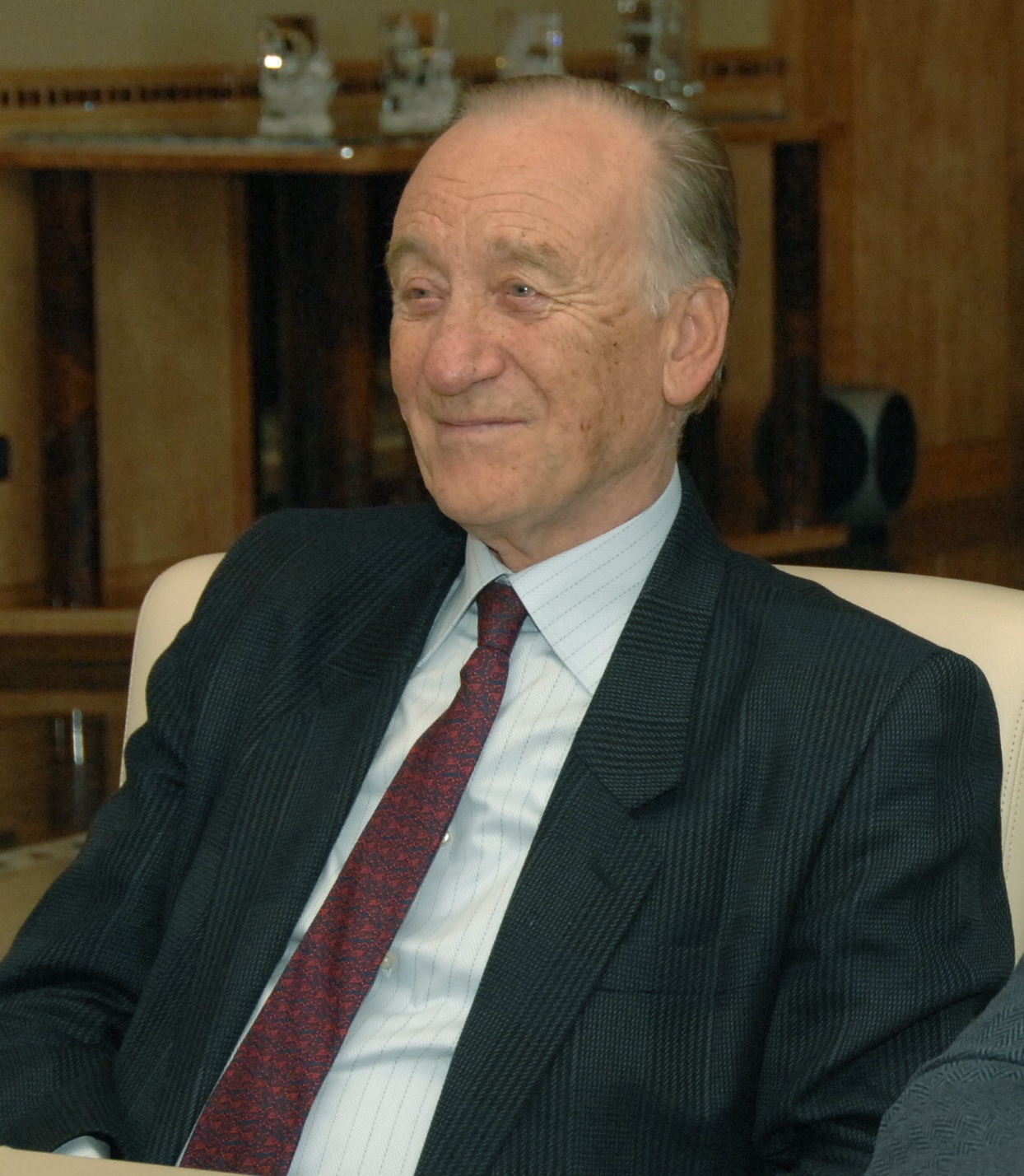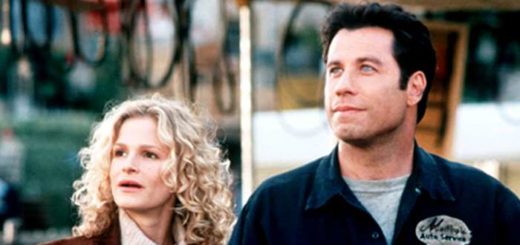
The annals of British cinema are replete with figures whose talent burned brightly, often accompanied by a life lived on the fringes of convention. Few embodied this blend of prodigious ability and public notoriety quite like Robert Oliver Reed, an actor whose imposing screen presence was matched only by his legendary, self-destructive exploits off-screen. For decades, Reed captivated audiences with his raw intensity and unbridled charisma, carving a path through Hollywood and British film with a series of unforgettable performances.
Yet, woven into the fabric of his glittering career was a darker thread: a profound and often public struggle with alcoholism that shaped his persona, dictated his choices, and ultimately, cast a long shadow over his legacy. His reputation as a ‘hellraiser’ was not merely an act but a deeply ingrained aspect of his existence, leading to countless anecdotes, altercations, and a public image that frequently overshadowed his considerable acting prowess. It was a lifestyle that, despite numerous warnings and personal costs, he seemed unwilling or unable to relinquish.
It is the confluence of this captivating talent and his relentless pursuit of excess that brings us to his final, most poignant chapter. In May 1999, while on the cusp of a potential career resurgence with a pivotal role in Ridley Scott’s epic ‘Gladiator’, Oliver Reed met a sudden and dramatic end. His death, in a pub in Malta, following a drinking contest with a group of sailors, was not just a tragic loss but a stark, almost poetic, culmination of a life lived without compromise.

1. **The Notorious ‘Hellraiser’ Persona**Oliver Reed’s public image was intrinsically linked to his “hellraiser” lifestyle, a reputation he cultivated with an almost theatrical dedication. He was known for his heavy drinking, boisterous behavior, and a tendency to make headlines for his off-screen antics as much as for his compelling performances. The British Film Institute noted that from the mid-1970s, his alcoholism began significantly affecting his career, cementing his mantle as “Britain’s thirstiest thespian.”
His good friend, director Michael Winner, famously captured the duality of Reed’s nature, stating, “Ollie was the kindest, calmest, and most polite man in the world… except when he was having a drink.” This quote succinctly encapsulates the enigma of Reed: a man capable of great charm and professionalism, yet one transformed by alcohol into a figure of unpredictable and often destructive force. This persona, while endearing to some, proved increasingly problematic for his career and personal life.
However, there has been much speculation regarding the authenticity of Reed’s drunken appearances, particularly on television. Some have suggested that he intentionally leaned into this provocative personality, performing for the cameras and giving the public what they expected from the notorious Oliver Reed. His son, Mark, in a 2013 interview, offered a more nuanced perspective, describing his father as, “Underneath it all, there was this very mannered, intelligent, shy individual. The other side of the coin was this — as people sadly remember him — hellraiser. But, looking back on him, I remember him for his work as well as the antics. The antics weren’t all the time.” This suggests a more complex individual behind the public facade, one perhaps trapped by the very image he helped to create.
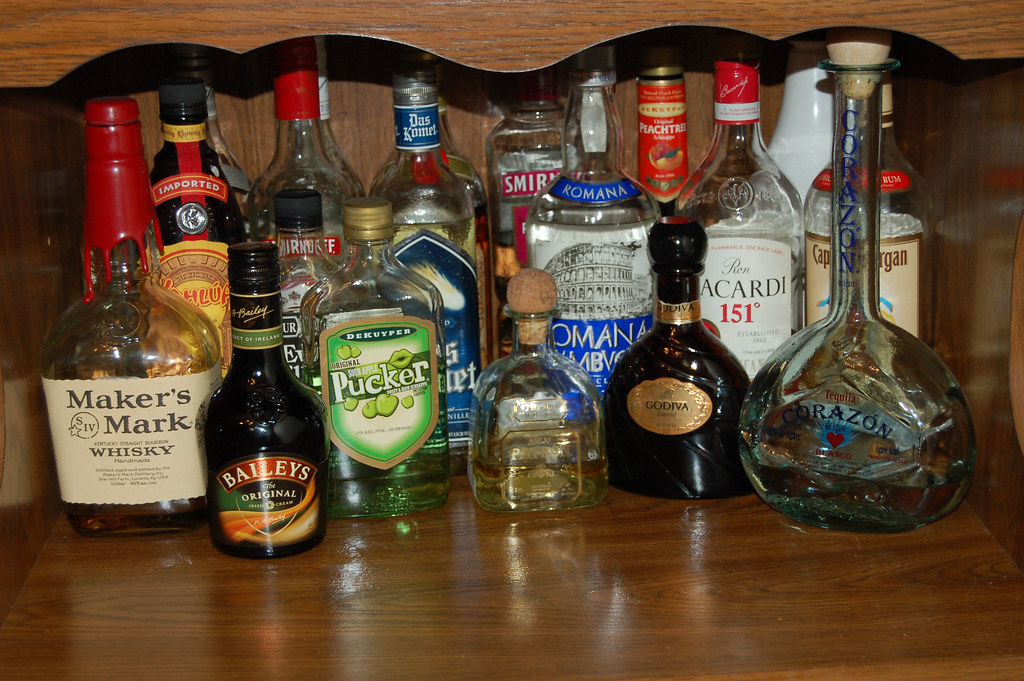
2. **Early Life and Introduction to Alcohol**Robert Oliver Reed was born on February 13, 1938, in London, into a family with a strong theatrical and cinematic lineage. His uncle, Sir Carol Reed, was a renowned film director, and his grandfather, Sir Herbert Beerbohm Tree, was a celebrated actor-manager. This artistic heritage undoubtedly influenced young Reed’s eventual career path, as he began appearing as an extra in films as early as 1955, still a teenager.
Intriguingly, alcohol, which would later define so much of his life, also made an early appearance in his formative years. Following his parents’ divorce when he was a toddler, his mother went through a series of relationships. Reed reportedly recalled to a journalist how he would watch these men stagger into his home after a night of drinking, an environment that provided an unusual, early initiation into the world of adult indulgence.
He even recounted a peculiar childhood memory, stating, “Sometimes I would be allowed to stay up late, playing barman. I was four and didn’t know what I was doing. So in the end, there was just an empty room with a mother sobbing in the corner and a lot of empty bottles in the bottom of the cocktail cabinet.” This poignant recollection paints a vivid picture of a childhood marked by the pervasive presence of alcohol, long before it became his own personal demon. These early experiences undoubtedly laid a foundation for the struggles that would later characterize his adult life and career.
Read more about: Unveiling a Hollywood Bond: The Intimate Friendship of Brittany Murphy and Winona Ryder on the ‘Girl, Interrupted’ Set

3. **The Scars of a Nightclub Brawl**Even before Oliver Reed’s alcoholism began to significantly impact his career, his volatile temperament and penchant for confrontation led to a defining incident in 1964. While at the Crazy Elephant nightclub in Leicester Square, Reed became embroiled in an argument at the bar. What began as a dispute escalated dramatically, culminating in a brutal attack in the bathroom where he was assaulted by men wielding broken glass bottles.
The consequences of this altercation were severe, leaving Reed with a staggering 63 stitches on one side of his face and permanent scarring. The incident was not merely a physical trauma; it cast a pall over his burgeoning acting career. Reed initially feared that the disfigurement would end his opportunities on screen, believing his career to be over before it had truly reached its zenith. Yet, these worries, fortunately, never came to fruition, and the scar arguably added to his rugged, intense screen persona.
Beyond the visible mark, the incident also influenced his physical mannerisms. According to his brother, after the attack, when engaged in arguments, the burly Reed would instinctively bring his hands up in a gesture that, while perhaps intended defensively, many found profoundly intimidating. This personal ordeal, a direct result of his off-screen life, became an indelible part of his public and private identity, a stark reminder of the dangers that lurked in his chosen path of excess.

4. **Infamous Antics: From Dangles to Debates**Oliver Reed’s “hellraiser” label was not just based on heavy drinking; it was fueled by a series of outrageous and often destructive antics that garnered him widespread notoriety. These incidents often blurred the lines between his public persona and private conduct, cementing his image as an unpredictable force of nature. One such infamous episode occurred in 1986 during the filming of *Castaway* in the Seychelles.
In what was described as a drunken prank, Reed allegedly picked up his stand-in and friend, Reg Prince, by his ankles and dangled him over a balcony, purportedly dropping him 12 feet to the beach below. Prince sustained a fractured spine from the fall and unsuccessfully sued Reed for the mishap in 1993, though the actor maintained Prince had fallen while attempting to attack him. This incident showcased a reckless side of Reed, where boundaries were often crossed under the influence of alcohol, leading to serious consequences for those around him.
Reed also gained a particular reputation for his behavior on talk shows, where his unfiltered remarks and intoxicated state often led to memorable, if controversial, moments. A classic example occurred during a 1975 appearance on *The Tonight Show with Johnny Carson*. Reed made inflammatory remarks about women’s liberation, which so angered actress Shelley Winters, a fellow guest, that she promptly poured a glass of whiskey over his head on-camera. This dramatic confrontation became one of television’s most iconic unscripted moments, further solidifying Reed’s image as a provocative and uncontainable figure. Some observers, however, have since speculated that Reed may have intentionally leaned into such provocative performances, not always being as drunk as he appeared, but rather giving the audience and producers the “hellraiser” they had come to expect.

5. **The Promise to Ridley Scott and ‘Gladiator’**By 1999, Oliver Reed, at 61 years old, was cast in Ridley Scott’s ambitious historical epic, *Gladiator*, in the significant role of Proximo, the gruff old gladiator trainer. This part represented a potential late-career resurgence for an actor whose professional opportunities had been increasingly hampered by his alcoholism. The stakes were high, and the director was keenly aware of Reed’s past struggles.
Prior to filming, Scott made Reed promise that he would abstain from drinking during the movie’s production. This commitment was likely influenced by a prior incident on the set of *Cutthroat Island* in 1995, where Reed had reportedly shown up intoxicated, exposed himself to lead actress Geena Davis, and was subsequently fired and recast. Scott’s demand was a clear attempt to ensure a professional and smooth production, vital for such a large-scale project.
Reed agreed to the director’s terms, an indication of his desire to succeed in this pivotal role and perhaps a recognition of the seriousness of his condition. However, his struggle with alcohol was deeply entrenched, a lifelong habit formed from early exposure. Despite his solemn promise, the lure of drink proved too powerful to resist entirely. While he reportedly abstained during actual shoot days, he still visited bars on weekends during breaks between filming, a compromise that ultimately proved fateful and underscored the profound hold alcoholism had on his life.
Read more about: The 15 Most Epic & Iconic Movie Fights Ever
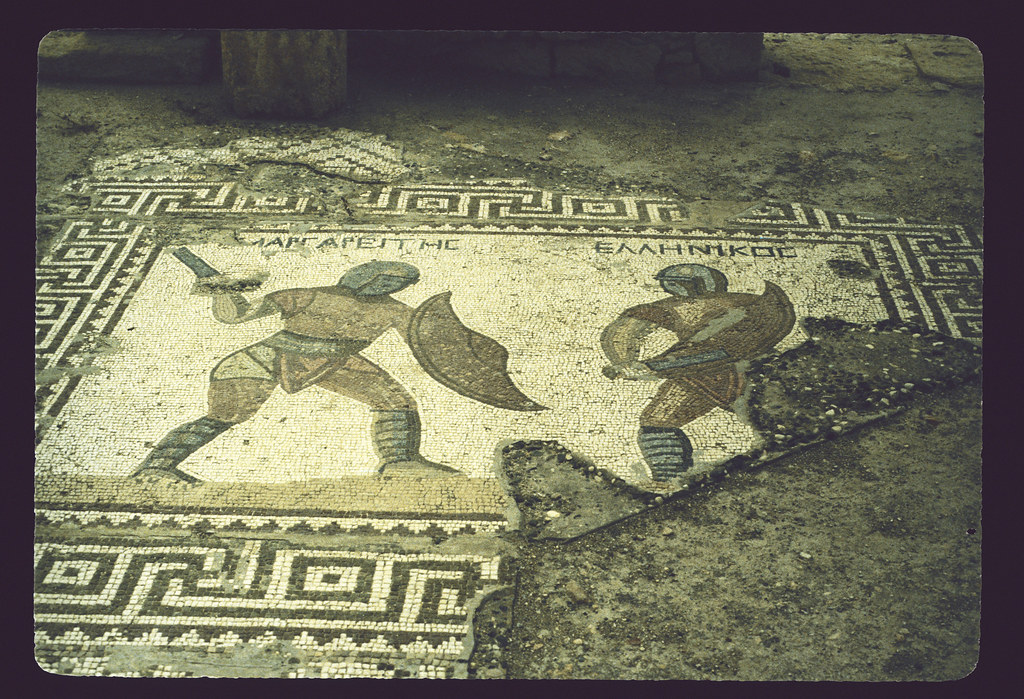
6. **The Final Break and the Maltese Pub**As the production of Ridley Scott’s epic *Gladiator* moved into its final stages in Valletta, Malta, Oliver Reed found himself at a crucial juncture. He had made a solemn promise to director Ridley Scott that he would abstain from drinking throughout the filming, a commitment born from past incidents and the high stakes of this potential career-revitalizing role. While he reportedly maintained sobriety during the actual shoot days, the deeply ingrained habit of a lifetime proved difficult to entirely break when the cameras weren’t rolling.
During breaks between filming, particularly on weekends, the allure of the local establishments proved too strong for Reed. It was during one such break, on the morning of May 2, 1999, that the 61-year-old actor ventured into a small pub in Valletta. This seemingly innocuous visit would soon escalate into a tragic culmination of his lifelong struggle with alcohol, a struggle that had been foreshadowed by doctors’ warnings and his own defiant pronouncements.
The atmosphere in the pub, likely bustling with local patrons and visitors, set the stage for the fateful encounter. Reed, known for his charismatic and often boisterous personality, was open to engagement, unaware that this particular day would mark the dramatic final chapter of his remarkable, yet often troubled, life. The arrival of a specific group of individuals would soon turn a casual pub visit into an event of historical note.
Read more about: From Broadway to Box Office: An In-Depth Look at John Huston’s Ambitious 1982 Film Adaptation of ‘Annie’
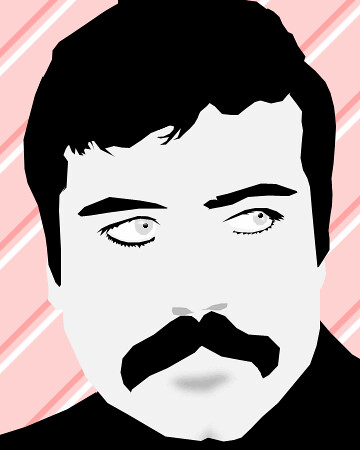
7. **The Fateful Drinking Contest**The pub’s tranquility was broken by the entrance of a group of Royal Navy sailors from HMS Cumberland, who were on shore leave and looking for entertainment. For Oliver Reed, known for his convivial nature and a lifelong affinity for a challenge, the opportunity for a drinking contest was seemingly irresistible. What began as a social encounter quickly spiraled into a competitive binge, with Reed eagerly participating.
Over the course of just a few hours, the seasoned actor engaged in a formidable drinking session that would shock most. Reports indicate that he consumed an staggering amount of alcohol: eight pints of beer, 12 shots of rum, and half a bottle of whiskey. This incredible feat of consumption resulted in a $435 tab, a testament to the intensity and speed of the contest. The sheer volume of drink would undoubtedly put an immense strain on anyone’s system, let alone a 61-year-old with a history of heavy drinking.
The inevitable consequence of such an extreme intake followed swiftly. After racking up his enormous tab, Oliver Reed suddenly collapsed on the floor of the pub. Despite immediate resuscitation efforts by his friends and those around him, his condition was critical. He was pronounced dead in the ambulance en route to the hospital, succumbing to a heart attack at the age of 61, a tragic end to a career marked by both brilliance and self-destruction.
Oliver Reed’s *Gladiator* co-star, Omid Djalili, later offered a poignant perspective on the circumstances of his death. Djalili stated that Reed “hadn’t had a drink for months before filming started… everyone said he went the way he wanted, but that’s not true. It was very tragic. He was in an Irish bar and was pressured into a drinking competition. He should have just left, but he didn’t.” This highlights the complexity of his struggle and the potential external pressures that contributed to his final, fatal decision, suggesting a tragedy rather than a chosen demise.
Read more about: Kelsey Bateman: Tragic Loss of ‘Rock of Love’ Star at 39 Recalls Her Memorable Reality TV Journey

8. **A Doctor’s Prophecy Fulfilled**Long before his dramatic collapse in a Maltese pub, Oliver Reed had received stark warnings about the perils of his legendary drinking habits. A doctor had once advised him that his heavy consumption of alcohol could, quite literally, lead to his demise. This professional caution, however, seemed to fall on ears that were either deafened by habit or defiantly dismissive of such pronouncements, deeply entrenched as he was in his ‘hellraiser’ persona.
In a chillingly prophetic statement, Reed himself had once told an interviewer, as recorded in the biography *Hellraisers: The Life and Inebriated Times of Richard Burton, Richard Harris, Peter O’Toole, and Oliver Reed*, “I don’t have a drink problem. But if that was the case and doctors told me I had to stop I like to think I would be brave enough to drink myself into the grave.” This declaration, made years prior, eerily foreshadowed the very manner of his passing. It was a statement that encapsulated his rebellious spirit, his refusal to be constrained, and perhaps, a fatalistic acceptance of his chosen path.
The tragic irony of his death is that it mirrored his own defiant words with haunting precision. A lifetime of alcoholism, punctuated by periods of intense binge drinking, culminated in one final, fatal morning of excess. His collapse in the pub, following an exhaustive drinking contest, was the ultimate, albeit grim, fulfillment of his own self-destructive prophecy. It brought a sudden and dramatic end to a 44-year-long career, leaving behind a legacy that was as controversial as it was brilliant.
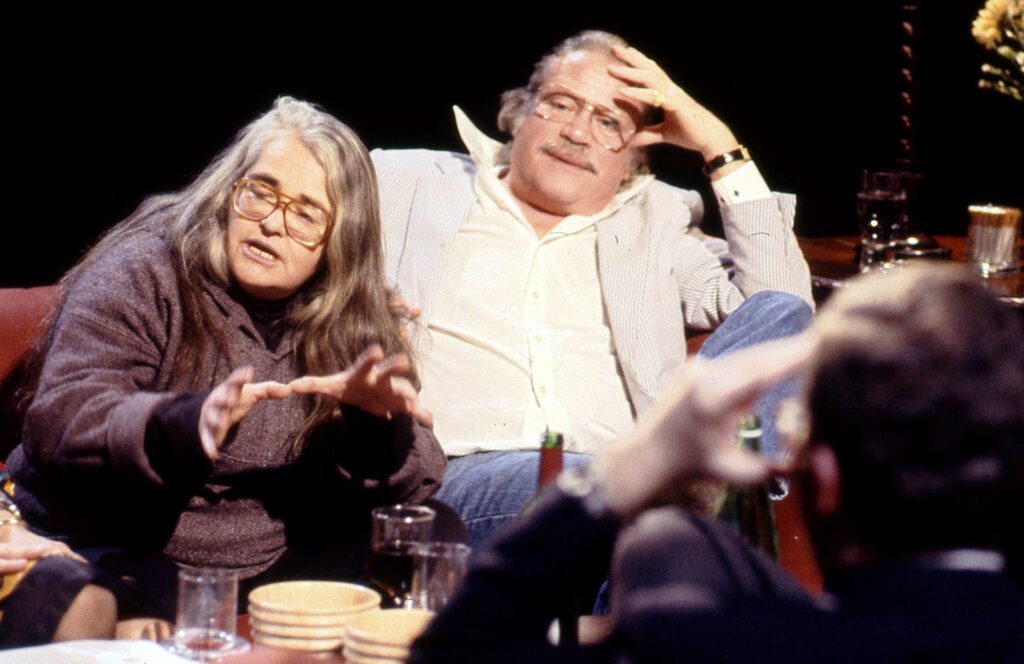
9. **Completing Proximo: The Digital Resurrection**Oliver Reed’s sudden death presented Ridley Scott and the production team of *Gladiator* with an unprecedented challenge. Filming was nearing its completion, with only a few of Reed’s crucial scenes as the gruff gladiator trainer Proximo remaining to be shot. Recasting the role at such a late stage would have been immensely difficult, financially prohibitive, and would have significantly delayed the eagerly anticipated epic. The integrity of the film and its narrative hung in the balance.
Faced with this dilemma, Scott made the innovative and daring decision to utilize nascent computer-generated imagery (CGI) techniques to complete Reed’s final performance. This involved a meticulous process: outtakes and unused footage of Reed were painstakingly reviewed, and a body double was employed for the necessary remaining shots. The challenge was to seamlessly blend these elements, ensuring that Proximo’s presence remained consistent and powerful throughout the film without any jarring visual discrepancies.
The process involved digitally compositing Reed’s face onto the body of a stand-in for specific scenes, a pioneering use of CGI for such a purpose at the time. This technological solution allowed the narrative to flow uninterrupted and preserved Reed’s performance, ensuring that his final cinematic contribution was fully realized. It was a testament to both the crew’s dedication and the burgeoning capabilities of visual effects in filmmaking, transforming a potential catastrophe into a groundbreaking technical achievement.
Upon its release, *Gladiator* was dedicated to Oliver Reed, a poignant tribute to the actor who had poured his final energies into the role. The decision to use CGI not only completed the film but also ensured that audiences worldwide could witness his powerful performance as Proximo, cementing it as a significant part of his enduring legacy. This innovative approach transformed a moment of profound loss into a landmark in cinematic history, showcasing how technology could bridge the gap left by an actor’s unexpected passing.

10. **The Enduring Legacy on Screen**Oliver Reed’s role as Proximo in *Gladiator* became, posthumously, one of his most celebrated and iconic performances. Despite the challenges posed by his untimely death, his portrayal of the grizzled, world-weary gladiator trainer resonated deeply with audiences and critics alike. He imbued Proximo with a perfect blend of cynicism, unexpected mentorship, and a poignant longing for freedom, creating a character that was both formidable and deeply human. It was a powerful, commanding final act for an actor renowned for his intense screen presence.
The impact of his performance was recognized through significant posthumous honors. Reed was nominated for the BAFTA Award for Best Actor in a Supporting Role, a testament to the strength and memorability of his portrayal. Furthermore, he shared in the film’s nomination for a Screen Actors Guild Award for Outstanding Performance by a Cast in a Motion Picture, acknowledging the collective brilliance of the ensemble and his integral part within it. These nominations underscored the critical appreciation for his work, even in the shadow of his passing.
*Gladiator* went on to achieve immense critical and commercial success, winning the Academy Award for Best Picture and becoming a global phenomenon. Reed’s compelling performance as Proximo undoubtedly contributed to the film’s triumphs, ensuring that his final appearance on screen was in a masterpiece that captivated millions. It provided a powerful coda to his illustrious career, reminding audiences of his undeniable talent and the raw magnetism he brought to every role, even as his personal struggles continued to define his public image.
Notably, *Gladiator* also featured another legendary ‘hellraiser’ of British cinema, Richard Harris, whom Reed greatly admired both professionally and personally. Their shared presence in the film, bringing their combined gravitas and distinctive screen personas, created a memorable dynamic that further enriched the epic. This collaboration added another layer to Reed’s final work, connecting him with a peer who understood the unique pressures and temptations of their shared profession.
Read more about: A Timeless Legacy: The Fashion World Unites in Tributes to the Enduring Genius of Giorgio Armani at 91
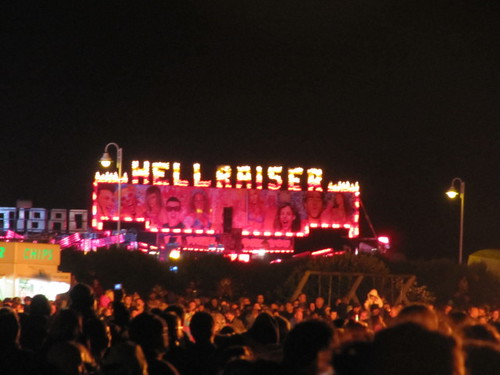
11. **The Man Behind the Legend: A Complex Legacy**Oliver Reed’s death left a profound and undeniable void, not only in the *Gladiator* cast but throughout the wider British acting community. He was a force of nature, a singular talent whose presence, whether on screen or off, was impossible to ignore. His passing marked the end of an era, a final curtain call for one of Britain’s most charismatic and controversial cinematic figures, leaving behind a legacy that continues to spark debate and admiration.
The public memory of Oliver Reed often oscillates between two extremes: the “hellraiser” and the gifted actor. His son, Mark, in a 2013 interview, tried to bridge this gap, describing his father as, “Underneath it all, there was this very mannered, intelligent, shy individual. The other side of the coin was this — as people sadly remember him — hellraiser. But, looking back on him, I remember him for his work as well as the antics. The antics weren’t all the time.” This nuanced perspective suggests a more complex man behind the flamboyant facade, one perhaps caught between his inherent nature and the public’s expectations.
The British Film Institute observed that from the mid-1970s, his alcoholism significantly impacted his career, leading him to assume Robert Newton’s mantle as “Britain’s thirstiest thespian.” Yet, before this, partnerships with directors like Michael Winner and Ken Russell had firmly established him as an “emblematic Brit-flick icon,” showcasing a versatility and intensity that few could match. His screen career spanned over four decades, marked by powerful performances in films such as *Oliver!*, *Women in Love*, and *The Devils*, solidifying his place among the greats.
Indeed, he was often mentioned in the same breath as other British acting titans of his generation—Richard Burton, Richard Harris, and Peter O’Toole—collectively known as the “Four Hellraisers.” These actors, celebrated for their prodigious talent and equally prodigious capacity for drink, brought a new vigor to British cinema and theatre. Reed, with his unapologetic pursuit of life and art, fit perfectly into this pantheon, embodying a certain untamed spirit that captivated audiences worldwide.
Oliver Reed’s epitaph, inscribed on his gravestone in Churchtown, County Cork, where he spent his final years, simply reads: “He made the air move.” It is a fitting tribute to a man who, whether through his acting, his antics, or his sheer force of personality, undeniably created a ripple effect wherever he went. His life was a compelling, often turbulent, narrative, and his death, a dramatic conclusion that cemented his legend as an unforgettable figure in film history, a man who lived and died on his own terms.
Read more about: Rock ‘N’ Roll on Wheels: 14 Iconic Musicians and the Classic Rides That Define Them
The story of Oliver Reed is not merely a cautionary tale; it is a profound exploration of genius, self-destruction, and the indelible mark one individual can leave on the world, even as his choices shaped his tragic destiny. His legacy continues to resonate, reminding us of the raw power of talent and the human cost of a life lived without compromise.

